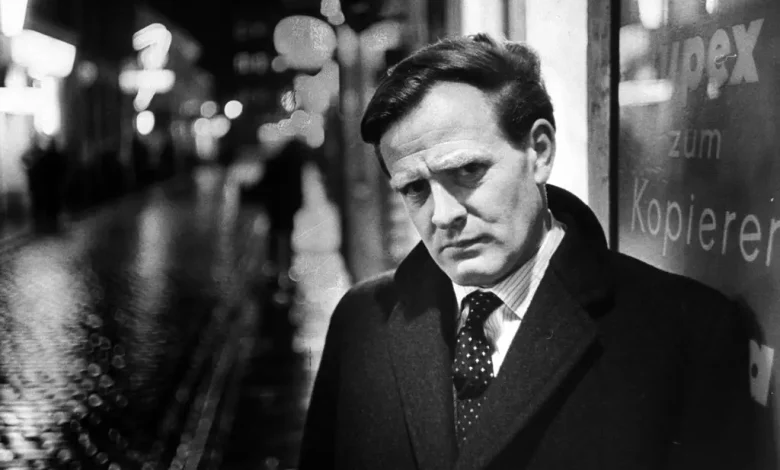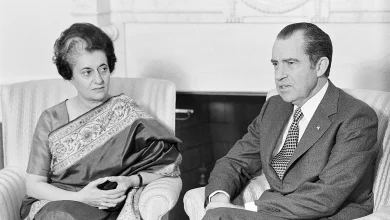
The controversy surrounding James Bond being labeled a neo-fascist gangster, as claimed by John Le Carré, has ignited intense debates within the literary and cinematic communities. In this article, we delve into the various facets of this provocative assertion, exploring the character of James Bond and analyzing the potential neo-fascist undertones within the franchise. By examining the arguments put forth by Le Carré and considering the historical and cultural influences that shaped the creation of Bond, we aim to provide a comprehensive understanding of this complex debate.
Key Takeaways
- John Le Carré claims that James Bond embodies neo-fascist characteristics, labeling him a gangster-like figure. However, this assertion should be approached critically, considering the fictional context of Bond’s character and the historical backdrop in which the franchise originated.
- Bond’s affiliation with MI6 and his disregard for due process raise concerns about potential abuses of power. It is important to analyze these aspects within the broader context of the narrative and the exploration of espionage themes.
- The portrayal of violence in the James Bond franchise can glamorize violence and potentially desensitize audiences. However, viewers must differentiate between fiction and reality and engage with the franchise critically.
- The debate surrounding Bond’s character reflects the broader themes and influences that shape our cultural icons. It invites us to question and reevaluate the impact of popular culture on society and to consider diverse interpretations of the character.
James Bond: The Neo-Fascist Gangster?
As the protagonist of countless novels and movies, James Bond has captivated audiences worldwide with his charm, wit, and daring escapades. However, Le Carré argues that beneath the surface, Bond represents a troubling figure. According to the acclaimed author, Bond’s adherence to a rigid moral code, his disregard for authority, and his penchant for violence all contribute to his portrayal as a neo-fascist gangster.
Le Carré points to Bond’s disregard for due process, often taking matters into his own hands without regard for legal or ethical constraints. Bond’s actions, while presented as necessary for the greater good, can be interpreted as a justification for vigilante justice—a characteristic often associated with gangster figures.
Moreover, Bond’s affiliation with MI6, the British intelligence agency, raises concerns about the potential abuse of power. Le Carré suggests that Bond’s unwavering loyalty to his superiors, combined with his propensity for violence, creates a dangerous cocktail that mirrors the autocratic tendencies found in fascist ideologies.
The Fascination with Violence
One of the most significant elements of Bond’s character is his relationship with violence. Le Carré argues that Bond’s portrayal as a relentless and ruthless agent glamorizes violence, potentially desensitizing audiences to its real-world consequences. Bond’s frequent encounters with adversaries, his proficiency with firearms, and his unyielding determination to eliminate threats, regardless of collateral damage, contribute to his depiction as a gangster-like figure.
However, it is crucial to consider the context in which the James Bond franchise originated. Created during the height of the Cold War, Bond’s character reflected the geopolitical tensions and espionage narratives prevalent at the time. The use of violence as a means to thwart evil forces aligns with the traditional framework of spy thrillers and action movies, rather than necessarily indicating a neo-fascist agenda.
Cultural Influences and Misinterpretations
To fully understand Le Carré’s perspective, it is important to acknowledge the cultural and historical influences that shaped the creation of James Bond. Ian Fleming, the author behind the iconic character, was a former intelligence officer during World War II. His firsthand experiences undoubtedly influenced the development of Bond’s character, with elements of real-world espionage woven into the fabric of the novels.
Le Carré’s interpretation of Bond as a neo-fascist gangster may stem from his own contrasting approach to writing espionage fiction. Le Carré’s works often delve into the moral ambiguity and complex motivations of intelligence operatives, presenting a more nuanced and realistic portrayal of the spy world. Consequently, he may view Bond’s simplified representation as a disservice to the complexities of the genre.
It is crucial to note that Le Carré’s claims have sparked debate within the literary and cinematic communities. While some agree with his assessment, others argue that Bond’s character should be understood within the context of escapist entertainment, rather than as a vehicle for political ideology.
John le Carré on why James Bond shouldn’t be classed as espionage literature
FAQ
1. Is James Bond truly a neo-fascist gangster?
While John Le Carré contends that James Bond embodies neo-fascist characteristics, it is essential to approach this claim with a critical lens. Bond’s portrayal as a hero fighting against global threats often involves him bending or breaking the rules to achieve his goals. However, labeling him as a neo-fascist gangster oversimplifies his character and overlooks other aspects of his persona.
Bond’s actions can be seen as a reflection of the era in which the franchise originated, emphasizing the Cold War tensions and the necessity for a strong, decisive agent. It is crucial to remember that Bond operates within a fictional context, where his methods are justified by the narrative. While his willingness to employ violence and disregard for authority raise concerns, they are not necessarily indicative of a neo-fascist ideology.
2. How does James Bond’s portrayal of violence impact viewers?
James Bond’s association with violence is undeniable, and it raises questions about its impact on viewers. Bond is often seen engaging in intense action sequences, employing firearms, and eliminating adversaries. This portrayal can glamorize violence and desensitize audiences to its real-world consequences.
However, it is crucial to acknowledge that the James Bond franchise exists within the realm of escapist entertainment. The character’s exploits are fictional and intended to provide thrilling and exciting experiences for audiences. It is the responsibility of viewers to distinguish between fiction and reality and approach Bond’s actions critically.
3. What historical and cultural influences shaped the creation of James Bond?
Ian Fleming, the creator of James Bond, was a former intelligence officer during World War II. His experiences and the geopolitical climate of the time influenced the development of Bond’s character. The Cold War era, with its espionage narratives and geopolitical tensions, provided the backdrop for Bond’s stories.
Fleming’s firsthand knowledge of the intelligence world informed his depiction of Bond’s adventures, infusing them with elements of real-world espionage. Understanding this historical and cultural context is crucial in comprehending the origins of Bond’s character and the themes explored in the franchise.
4. How does John Le Carré’s approach to espionage differ from the James Bond franchise?
John Le Carré’s espionage novels often delve into the moral ambiguity and complex motivations of intelligence operatives. Unlike the glamorous and larger-than-life portrayal of James Bond, Le Carré’s works present a more nuanced and realistic depiction of the spy world. His characters often grapple with ethical dilemmas and the consequences of their actions.
Le Carré’s critique of Bond as a neo-fascist gangster may stem from his contrasting approach to writing espionage fiction. His emphasis on the human cost, moral dilemmas, and intricate character development sets his work apart from the Bond franchise’s more straightforward action-oriented narratives.
5. Does Bond’s affiliation with MI6 contribute to the neo-fascist label?
Bond’s allegiance to MI6, the British intelligence agency, is an integral part of his character. While Le Carré argues that this affiliation contributes to Bond’s neo-fascist persona, it is essential to consider the nuances of his relationship with the agency.
Bond’s loyalty to MI6 can be seen as a representation of his commitment to a greater cause, protecting the interests of his country. However, it is crucial to maintain a critical perspective and acknowledge that blind loyalty to any organization can lead to potential abuses of power. Bond’s association with MI6 should be analyzed within the broader context of the franchise and its exploration of espionage themes.
6. How does James Bond’s disregard for due process affect his portrayal?
One of the criticisms leveled against Bond is his tendency to bypass due process and take matters into his own hands. Le Carré argues that this disregard for legal and ethical constraints aligns with the actions of a gangster figure.
Bond’s willingness to operate outside the confines of the law can be seen as a reflection of his role as a covert agent. Espionage often involves navigating complex situations where traditional rules may hinder progress. However, this portrayal should be understood within the context of a fictional narrative and not as a justification for real-world actions.
7. What is the impact of James Bond’s character on popular culture?
James Bond has become an enduring cultural icon since his introduction in Ian Fleming’s novels. His suave demeanor, gadgets, and daring adventures have left an indelible mark on popular culture. The franchise’s success has spawned numerous movies, books, and merchandise, captivating audiences worldwide.
Bond’s influence extends beyond the realm of entertainment, shaping societal perceptions of spies, espionage, and masculinity. His character has become synonymous with sophistication, charm, and resilience, and his impact on popular culture cannot be understated.
8. How do other interpretations of James Bond differ from Le Carré’s?
While Le Carré’s assessment of Bond as a neo-fascist gangster has garnered attention, it is important to note that other interpretations exist. Bond’s character is multifaceted and has been portrayed by various actors, each adding their own nuances to the role.
Some perceive Bond as a quintessential hero, fighting against evil forces to preserve global peace. Others argue that his character is a product of its time, reflecting the geopolitical tensions of the Cold War era. The diverse range of interpretations reflects the complexity of Bond’s character and the diverse perspectives within the fanbase.
9. Is James Bond a representation of toxic masculinity?
The portrayal of James Bond has often been associated with elements of toxic masculinity. Bond’s womanizing tendencies, his objectification of women, and his reliance on physical prowess are some of the aspects that fuel this perception.
Critics argue that Bond’s characterization perpetuates harmful gender stereotypes, reinforcing the notion of men as dominant and women as objects of desire. However, it is important to acknowledge that the franchise has evolved over time, introducing more empowered and complex female characters. The ongoing discussion surrounding Bond’s representation of masculinity demonstrates the evolving societal expectations and the need for nuanced portrayals of gender in popular culture.
10. How does the James Bond franchise continue to evolve?
Since the inception of the James Bond franchise, the character and the narratives have evolved to reflect changing times. Each new iteration of Bond brings fresh perspectives and approaches to the role.
In recent years, the franchise has made conscious efforts to address concerns regarding gender representation and diversity. The introduction of a female 007 and more well-rounded female characters exemplifies the franchise’s commitment to adapting to societal expectations and broadening its appeal.
The James Bond franchise remains a cultural touchstone, continually adapting to the evolving landscape of entertainment and audience expectations. Its ability to spark discussions and debate around topics such as ideology, violence, and gender highlights its enduring relevance in popular culture.
Conclusion
The assertion that James Bond is a neo-fascist gangster, made by John Le Carré, highlights the multifaceted nature of the character and the diverse interpretations within the literary and cinematic realms. While some argue that Bond’s actions and characteristics align with neo-fascism, it is important to recognize the fictional context in which he exists and the historical influences that shaped his creation.
James Bond’s portrayal as a charismatic spy battling against global threats has captivated audiences for decades. While criticisms regarding violence, due process, and toxic masculinity persist, the franchise has also undergone evolution, incorporating more nuanced and empowered representations of gender.
The ongoing debates sparked by Le Carré’s claims encourage critical analysis of our cultural icons and the messages they convey. By engaging in these discussions, we can deepen our understanding of popular culture’s impact and foster a more nuanced appreciation for the complexities inherent in the portrayal of iconic characters like James Bond.









